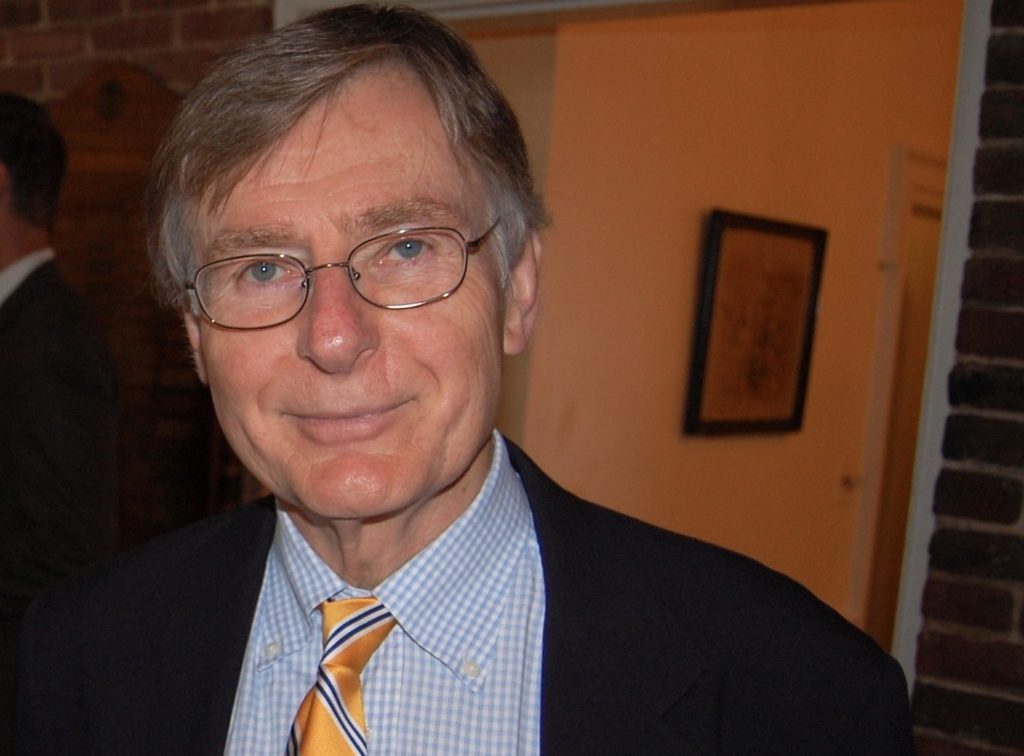‘Town Crier’ Ray Kukulski Has Died
By • January 17, 2019 0 1967

The “town crier” of Georgetown, Ray Kukulski — the man that almost every resident in Georgetown paid attention to on a daily basis, due to his dozens of repostings on the Citizens Association of Georgetown’s Georgetown Forum listserv — has died. Kukulski collapsed suddenly at Sibley Hospital last Thursday, Jan. 10, apparently of an aneurysm or a brain hemorrhage. He had recently turned 77.
“Doctors said there was no chance of recuperation or survival,” CAG Executive Director Leslie Maysak told The Georgetowner on Jan. 17. Kukulski’s next of kin had arrived earlier in the week to make a decision about the removal of life support.
“He was a kind man with a warm heart and sweet smile,” wrote Elizabeth Miller, who was CAG’s executive director when Kukulski was president. “He had a passion for Georgetown and made it a better place for sure.”
“Ray was a factor in Georgetown for over 50 years,” said Maysak. “He will be so very missed by everyone in Georgetown.”
Kukulski’s sudden death seems almost impossible to believe to many Georgetown residents, who were used to seeing the vigorous 70-something walking from his townhouse at the harbor end of 30th Street. Almost daily he would go along the riverfront, the C&O Canal and M Street, then up Wisconsin Avenue to R Street, the parks and the library.
He attended almost every meeting of various Georgetown community organizations, including CAG and Advisory Neighborhood Commission 2E — both of which he had served as chairman. He was especially concerned about construction on M and 30th Streets, often checking for posted permits and reporting his concerns to The Georgetowner and others.
In 2009, CAG recorded and transcribed a long interview with Kukulski as part of its Georgetown Oral History Project, available at cagtown.org. In it, he describes moving to his house on 30th Street in 1967 with three fellow naval officers.
“Georgetown was a different place then,” he relates. “Across the street from me, which is now Jefferson Court, and next door, which is now the Saudi Mission of Defense, was Geller’s Lumber Yard. The area south of K Street and to the east of 30th was just a big flat grassy area with a railroad siding to load and unload lumber. The townhouses north of K were the same, and what is now the Latham Hotel was a gas station which faced M Street.”
Kukulski was in Georgetown off and on during the Vietnam War and the protests of the 1960s and ’70s; he was doing naval duty out of San Diego then. But in the 1980s, he was back. He was president of Georgetown’s ANC just as the south end of Georgetown gentrified and underwent one its biggest changes: the development of the Washington Harbour complex.
“We were opposed to it,” Kukulski recalls on tape, “because we always wanted a full park down there. I remember testifying against it, because I’m an old sailor, and the developers had shown a little model with a sailboat inside of a little bridge. There was no way in hell you were getting a sailboat in there. I said: ‘Come on guys! That’s not going to work at all.’ But the city felt the income would be necessary and, as you know, our department was well-connected. That was how they finally got around what you could do — with a variance from Mayor Barry.”
Kukulski had seen and been involved in a significant amount of Georgetown history. He had a lot to say about traffic (horrendous) and parks (great) and the new arrival of young families in Georgetown (even greater). He opposed the Whitehurst Freeway all his life. “It made sense in the ’40s when south of M Street was an industrial area and the street a diesel train railroad tracks shared with cars. But now that K Street is an entertainment destination the freeway makes no sense,” he said.
Georgetown’s town crier has now passed on, but his anti-Whitehurst Freeway sentiment continues. “It’s a dead issue for the moment,” Kukulski said on the CAG tape. “But eventually it’s going to fall down. You can only keep a bridge together so long. Now that the park is there, it makes so much more sense to not have it.”

